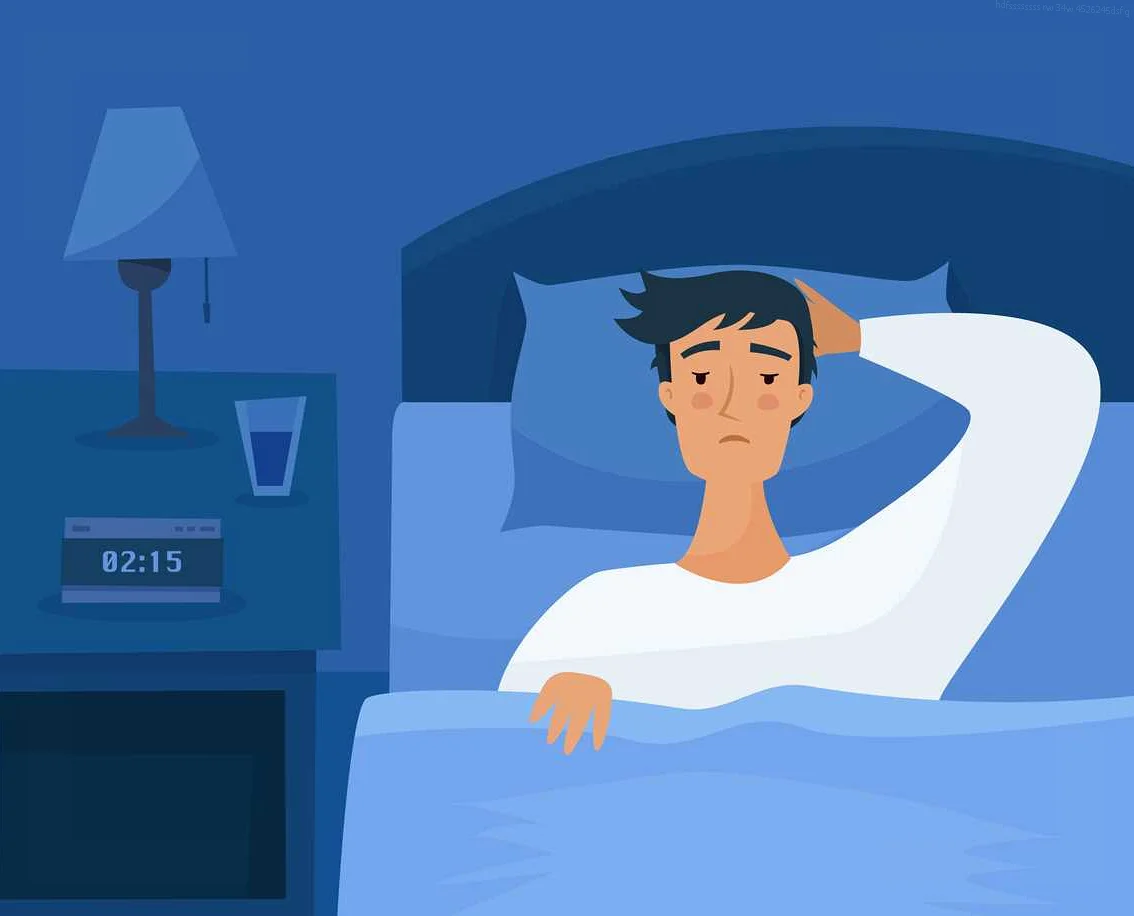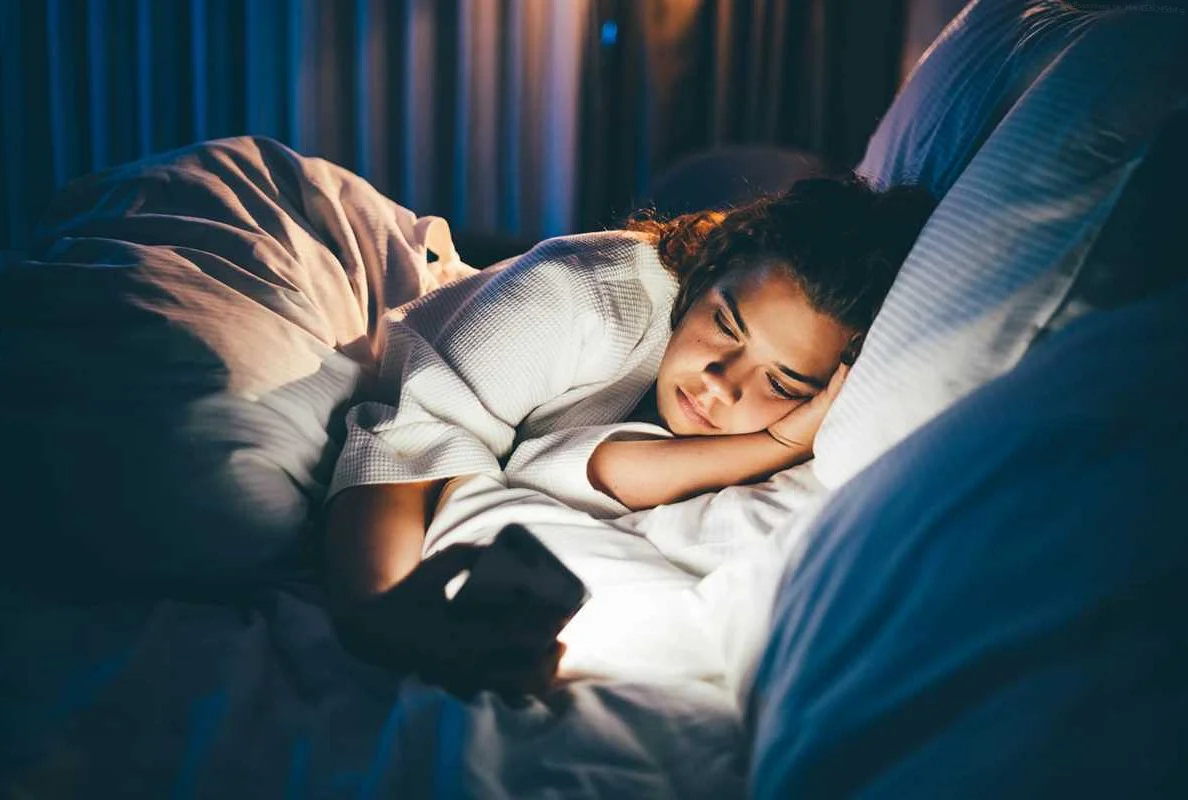This is not insomnia: 5 habits that prevent us from sleeping properly
Содержимое
Discover 5 common habits that disrupt your sleep and prevent you from getting a proper night’s rest. From excessive screen time to caffeine consumption, learn how to improve your sleep and overcome insomnia-like symptoms.
Sleep is essential for our overall well-being and productivity. However, many of us struggle to get a good night’s sleep, often without realizing that our own habits and behaviors are disrupting our sleep patterns. While insomnia is a well-known sleep disorder, there are several common habits that can also prevent us from sleeping properly.
One such habit is using electronic devices before bedtime. The blue light emitted by smartphones, tablets, and computers can interfere with the production of melatonin – the hormone that regulates sleep. Additionally, the content we consume on these devices can be stimulating, making it difficult for our minds to relax and unwind before sleep.
Another common habit that can disrupt our sleep is consuming stimulants late in the day. Caffeine, nicotine, and even some medications can stay in our system for hours, preventing us from falling asleep easily. It’s important to limit our consumption of these substances, especially in the evening, to ensure a restful night’s sleep.
Additionally, irregular sleep schedules can wreak havoc on our sleep patterns. Our bodies have internal clocks, known as circadian rhythms, that regulate our sleep-wake cycles. When we constantly change our sleep routines, such as staying up late on weekends or having inconsistent bedtimes, our bodies struggle to find a regular sleep pattern, leading to difficulty falling asleep and waking up.
In today’s fast-paced world, stress and anxiety are common culprits that can interfere with our ability to sleep. Constantly worrying or ruminating over our problems can keep our minds active, making it difficult to relax and fall asleep. Establishing a bedtime routine that includes relaxation techniques, such as deep breathing or meditation, can help calm the mind and prepare it for sleep.
Lastly, a sedentary lifestyle can also impact our sleep quality. Lack of physical activity can make falling asleep more difficult, as our bodies have not expended enough energy throughout the day. Engaging in regular exercise, even if it’s a light walk or stretching, can promote better sleep by tiring out our bodies and reducing restlessness at night.
By recognizing and addressing these habits that prevent us from sleeping properly, we can take steps towards improving the quality and duration of our sleep. Making small changes to our daily routines and creating a sleep-friendly environment can have significant positive effects on our overall well-being and ensure we wake up feeling refreshed and ready to tackle the day.
Late-night screen time
One of the most common habits that prevent us from sleeping properly is spending too much time in front of screens before going to bed. Studies have shown that exposure to the blue light emitted by electronic devices like smartphones, tablets, and computers can disrupt our sleep patterns.
The blue light suppresses the production of melatonin, a hormone that regulates our sleep-wake cycle. When we are exposed to this light at night, our bodies may have trouble recognizing that it’s time to wind down and go to sleep.
In addition to the blue light, the content we consume on screens at night can also be stimulating and keep our minds alert. Scrolling through social media feeds, watching exciting or disturbing videos, or engaging in intense discussions online can all affect our ability to relax and fall asleep.
To improve your sleep quality, it’s important to establish a screen-free bedtime routine. Try to avoid using electronic devices at least one hour before bed. Instead, engage in relaxing activities such as reading a book, taking a warm bath, or practicing relaxation techniques.
| Disrupts melatonin production | Avoid screens at least one hour before bed |
| Stimulates the mind | Engage in relaxing activities before bed |
By limiting your exposure to screens in the evening, you can improve your sleep quality and ensure that you are well-rested for the following day.
Caffeine intake before bed
One of the most common habits that can disrupt our sleep is consuming caffeine before bedtime. Caffeine is a stimulant that can stay in our system for several hours, making it difficult for us to fall asleep and stay asleep throughout the night.
Many people enjoy a cup of coffee or tea in the evening to help them relax, but this can have a negative impact on our sleep quality. The effects of caffeine can vary from person to person, but it is generally recommended to avoid caffeinated beverages at least 4-6 hours before going to bed.
Caffeine can interfere with our natural sleep-wake cycle by blocking the effects of adenosine, a chemical that promotes sleep. It can also increase alertness and make it harder for us to wind down and relax before bed.
In addition to coffee and tea, caffeine can also be found in other foods and drinks such as chocolate, energy drinks, sodas, and some medications. It’s important to be mindful of our caffeine intake throughout the day and especially in the evening to ensure a better night’s sleep.
If we find ourselves craving a warm drink before bed, it’s best to opt for caffeine-free herbal teas or warm milk, which can actually promote relaxation and help us unwind.
To improve our sleep quality, it’s important to be aware of the impact of caffeine on our sleep and to make conscious choices about our consumption, especially in the hours leading up to bedtime. By limiting our caffeine intake, we can create a more conducive sleep environment and enjoy a better night’s rest.
Irregular sleep schedule

An irregular sleep schedule can disrupt our natural sleep-wake cycle and make it difficult to get a good night’s sleep. When we constantly change our sleep times and wake up at different hours each day, our body’s internal clock becomes confused, leading to insomnia and other sleep problems.
Having an irregular sleep schedule can be caused by various factors, such as shift work, jet lag, or simply poor sleep habits. Some people may have jobs that require them to work night shifts or rotate between day and night shifts, making it challenging to establish a consistent sleep pattern. Traveling across different time zones can also disrupt our sleep schedule, as our body needs time to adjust to the new time zone.
In addition to external factors, our own sleep habits and routines can contribute to an irregular sleep schedule. Going to bed at different times each night and waking up at different times each morning can throw off our body’s natural rhythm. This can make it harder to fall asleep at night and wake up feeling refreshed in the morning.
To improve our sleep schedule, it’s important to establish a consistent sleep routine. This involves going to bed and waking up at the same time every day, even on weekends. Creating a relaxing bedtime routine can also help signal to our body that it’s time to unwind and prepare for sleep. This may include activities such as reading a book, taking a warm bath, or practicing relaxation techniques.
Avoiding stimulants, such as caffeine and electronics, close to bedtime can also promote better sleep. Caffeine can interfere with our ability to fall asleep, so it’s best to limit consumption in the afternoon and evening. The blue light emitted by electronic devices can suppress the production of melatonin, a hormone that helps regulate sleep, so it’s recommended to avoid screens at least an hour before bedtime.
By establishing a regular sleep schedule and adopting healthy sleep habits, we can improve our sleep quality and overall well-being. Consistency is key when it comes to sleep, so it’s important to prioritize a consistent sleep routine for better rest and rejuvenation.
Lack of physical activity

Physical activity plays a crucial role in promoting a good night’s sleep. Lack of exercise can negatively impact the quality and duration of sleep. When we don’t engage in regular physical activity, our body gets accustomed to a sedentary lifestyle, making it harder for us to fall asleep and stay asleep throughout the night.
Regular exercise helps to regulate our circadian rhythm, which is the internal clock that controls our sleep-wake cycle. Engaging in physical activity during the day can help signal to our body that it’s time to be awake and active. Additionally, exercise helps to reduce stress and anxiety, which are common culprits of sleep disturbances.
It’s important to note that exercising too close to bedtime can have the opposite effect and actually make it harder to fall asleep. This is because exercise increases our body temperature and stimulates the release of endorphins, both of which can make it difficult to wind down and relax.
To optimize sleep quality, it’s recommended to engage in moderate to vigorous physical activity at least 3-4 hours before bedtime. This can include activities such as jogging, swimming, cycling, or even a brisk walk. Regular exercise not only promotes better sleep but also offers many other benefits for overall health and well-being.
Incorporating physical activity into our daily routine is key to maintaining a healthy sleep pattern. By making exercise a priority, we can improve our sleep quality and experience better restfulness each night.
Stress and anxiety

Stress and anxiety are common culprits that can prevent us from getting a good night’s sleep. When we are stressed or anxious, our mind is racing and it becomes difficult to relax and fall asleep.
Stress is a natural response to situations that we perceive as threatening or challenging. However, chronic stress can have negative effects on our sleep patterns and overall well-being. It can lead to insomnia, restless sleep, and even sleep disorders like sleep apnea.
Anxiety is a condition characterized by persistent worry, fear, and uncertainty. It can cause racing thoughts and excessive worry, making it hard to calm down and sleep peacefully. Anxiety disorders like generalized anxiety disorder and panic disorder can significantly impact sleep quality.
Both stress and anxiety can be managed with various techniques. Engaging in relaxation exercises, such as deep breathing and meditation, can help reduce stress and promote better sleep. Creating a bedtime routine and establishing a relaxing sleep environment can also help alleviate anxiety and improve sleep quality.
It is important to address and manage stress and anxiety to ensure a good night’s sleep. If stress and anxiety become overwhelming and persistently interfere with sleep, it may be beneficial to seek professional help from a therapist or counselor.